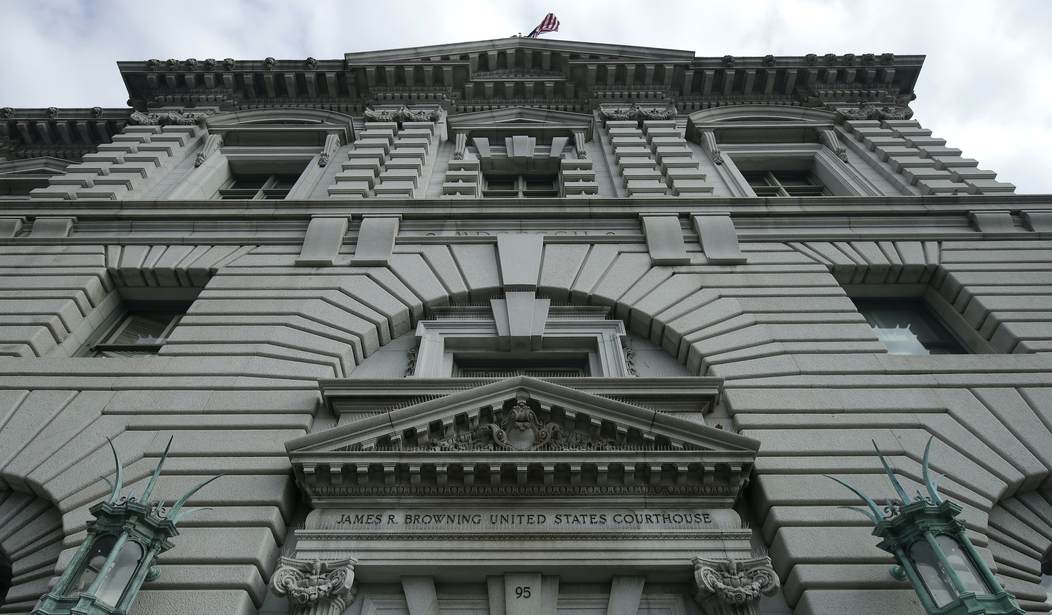A three-judge panel of the 11th Circuit U.S. Court of Appeals recently threw a wrench into the blatantly discriminatory practices of big-money corporate interests. In American Alliance for Equal Rights v. Fearless Fund Management, over a bizarre dissent by Judge Robin Rosenbaum, Judges Kevin Newsom, and Robert Luck upheld an injunction against a venture capital fund with tens of millions of dollars in assets that gives money only to businesses owned by black women. Nobody else is eligible to even apply.
The plaintiff, The American Alliance for Equal Rights, sued on behalf of three of its members—business owners who are not black women and are, therefore, not allowed to compete in Fearless Fund Management’s funding process. Fearless Fund was apparently fearless about violating anti-discrimination laws.
The threshold question was whether the Alliance had standing to sue on behalf of its members. Each member provided an affidavit showing they are “able and ready” to participate in Fearless Fund’s competition, meet all prerequisites but the racial one, and have concrete plans to use the funds they would get to build up their businesses if they weren’t racially excluded.
That is all that is required to establish standing, according to Judges Newsom and Luck, and they are correct – these business owners have an obvious claim since they are explicitly excluded from even applying for the $20,000 in venture capital offered by Fearless in its grant contest.
Yes, Fearless Fund discriminates against Alliance members because of their race, but that isn’t enough to establish standing, according to Judge Rosenbaum, an Obama appointee. In her dissent, Rosenbaum accused the Alliance of “flopping”—that is, faking an injury the way soccer players do by flopping on the field—“to manipulate the referee into inappropriately exercising his power to award a penalty kick in the box.”
That’s a strange position to take in the 21st century because, according to Rosenbaum’s illogic, members of the NAACP who, during Jim Crow, avoided hotels, restaurants, and buses where they knew they’d be turned away would be “flopping” because they didn’t go in and get turned away. This retrograde view of civil rights ignores that, as Justice Brett Kavanaugh put it recently, “discrimination is harm.” It would also force victims of discrimination into humiliating and even potentially dangerous situations before letting them seek justice.
It’s curious, isn’t it, how efforts to defend the race discrimination that is now trendy and politically correct in academia, the media, and the corporate world so often end up tolerating the race discrimination that was trendy in the past? The only difference between today and the 1960s is which race is being discriminated against and which is benefitting.
But Newsom and Luck took a principled view and reminded Rosenbaum that “we’re talking about real-live, flesh-and-blood individuals who were excluded from the opportunity to compete in Fearless’s contest solely on account of the color of their skin. Respectfully, victims of race discrimination—whether white, black, or brown—are not "floppers.”
They face very real race discrimination, and that discrimination, Newsom and Luck recognized, is forbidden by federal law. The lawsuit was filed under 42 U.S.C. § 1981, which, as the judges pointed out, prohibits race discrimination in the making and enforcement of contracts. In fact, the entry form for applicants specifically said it was a “contract.” But Fearless very “conspicuously” changed that to take out the contract language after the lawsuit was filed in an obvious attempt to avoid the legal consequences of violating federal law.
In defense of its discrimination, Fearless Fund argued, in essence, that it was allowed to discriminate “so long as there are prospective funders out there who aren’t discriminating.” Newsom and Luck dismissed that argument as “anathema to the principles that underlie all antidiscrimination provisions.”
There is no doubt that the Southern racists of a now long-gone era would have loved that argument. By Fearless Fund’s logic, so long as some hotels, restaurants, and buses served black people, they would be free to discriminate against black Americans. We know that was wrong then. And it is still wrong today, as is discriminating against anyone on the basis of race.
In a last-ditch attempt to defend its discrimination, Fearless Fund argued that it had a free-speech right to engage in racial discrimination. But Newsom and Luck dismantled that argument too. There is a “critical distinction between advocating race discrimination and practicing it,” they said.
And again, an example from the past proves the point. If a restauranteur banned black people from his restaurant, he would certainly be making a statement, but while the First Amendment would protect his right to say racist things, it would not protect his act of discriminatory exclusion.
So, too, today.
Of course, the trendy race discrimination that Fearless Fund practiced has its defenders. A quick internet search will reveal angry pundits saying that the decision is racist, that it “fails black women,” that it represents “a sick victory,” and that it amounts to “using historic civil rights laws to attack black people.”
But take their arguments out of the thick cloud of rhetoric that pervades our era and apply them to the discrimination of the last one, and you will find what Rosenbaum missed—that to defend discrimination today is to excuse discrimination yesterday. There were angry pundits then, too, who no doubt argued that the ending of segregation and discrimination against blacks was a “sick victory” and an “attack on white people.”
The wiser path is to rise above our era and find the principles that transcend all of them, as Newsom and Luck did. Racial discrimination is always wrong – there is never any justification for it. And it is about time that the corporate world of American business recognized that, just as American universities have been forced to do.









Join the conversation as a VIP Member